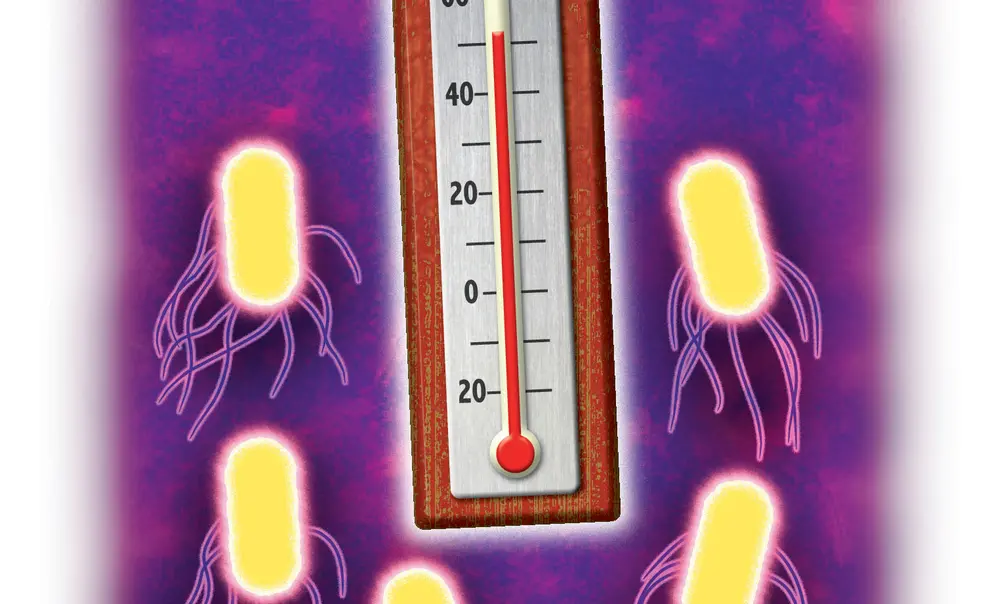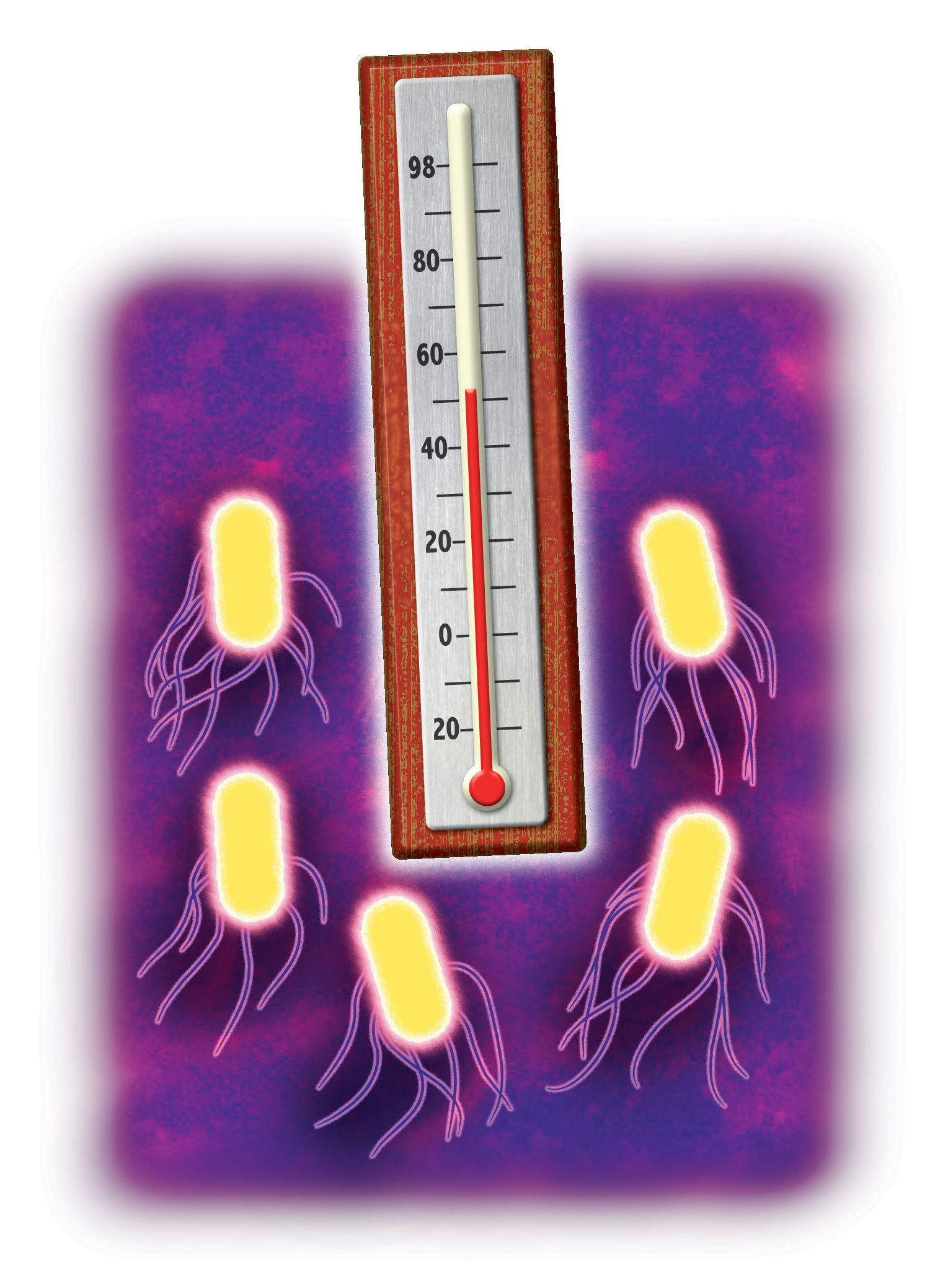Bacteria can anticipate and prepare for changes in their surroundings by recognizing environmental cues, such as a change in temperature, according to Princeton research published in Science June 6. The authors, Saeed Tavazoie, an associate professor of molecular biology, graduate student Ilias Tagkopoulos, and postdoctoral researcher Yir-Chung Liu, set out to explore whether intracellular networks had the capacity for the sort of predictive behavior observed in organisms with more complex nervous systems. In one study of E. coli, they found that a sharp rise in temperature, like the one that the bacteria would experience when entering a vertebrate’s mouth, caused E. coli to switch off genes for aerobic respiration and prepare to breathe without oxygen — a necessity when living in the animal’s gut. The finding, Tavazoie said in a news release, is the first of its kind.
Newsletters.
Get More From PAW In Your Inbox.













No responses yet